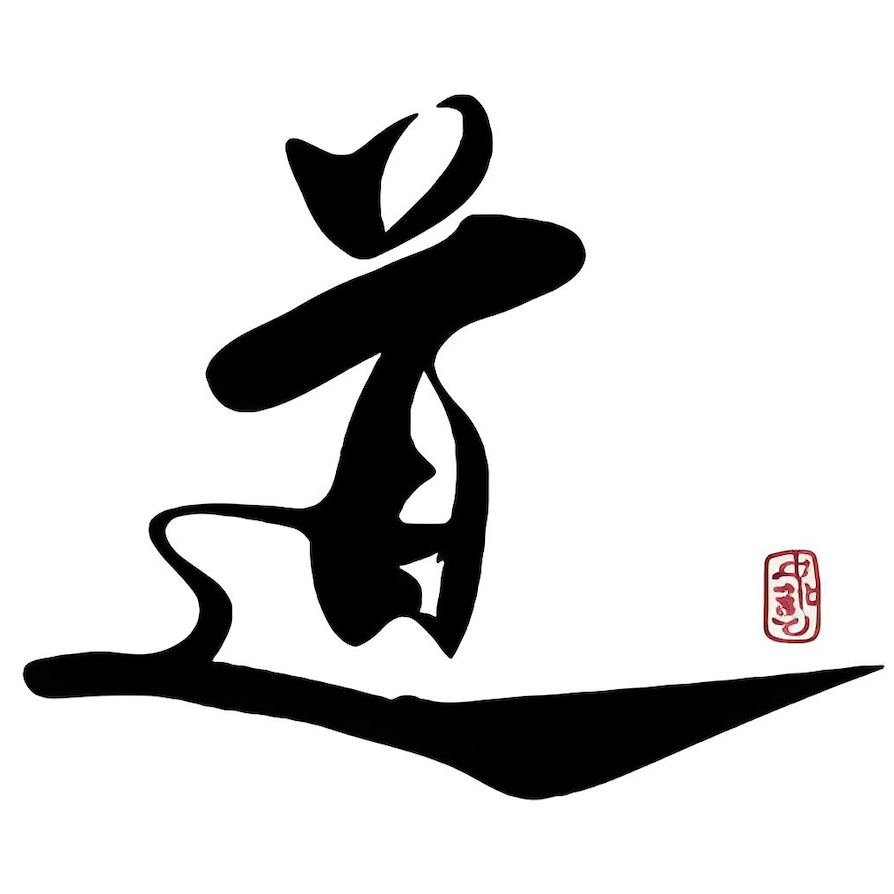老子(约公元前571年—公元前471年),姓李名耳,字聃,尊号为“太上老君”,是中国古代伟大的思想家、哲学家和道家学派的创始人,也是道教文化的重要奠基者。作为《道德经》的作者,他以其深邃的思想和哲学智慧,对中国文化乃至世界哲学产生了深远的影响。
Laozi (circa 571 BCE – 471 BCE), whose surname was Li and given name was Er, with the courtesy name Dan, is revered as “Tai Shang Lao Jun” (The Grand Supreme Elderly Lord). He was a great thinker, philosopher, and the founder of the Taoist school in ancient China, as well as a crucial figure in the development of Taoist culture. As the author of the Tao Te Ching, his profound thoughts and philosophical wisdom have left an indelible mark on Chinese culture and world philosophy.
一、老子的生平概述 A Brief Overview of Laozi’s Life
老子的生平事迹多带有传奇色彩,据《史记·老子韩非列传》记载,老子出生于春秋时期的楚国,担任过周王室的守藏史,负责管理皇家藏书。相传他在辞官后,骑青牛西出函谷关时,留下了5000字的《道德经》,被视为道家思想的经典。
Laozi’s life is shrouded in legend. According to Records of the Grand Historian (*Shiji*) by Sima Qian, Laozi was born in the state of Chu during the Spring and Autumn Period. He served as the Keeper of the Archives for the Zhou royal court, managing the royal library. It is said that upon resigning from his post, he rode a green ox westward and left behind the Tao Te Ching, a classic of Taoist thought, at the request of the guardian at Hangu Pass.
关于他的晚年,有多种说法,有的认为他远游到西方传道,有的认为他隐居山林过着无为而治的生活。他的真实生平由于史料有限而无法确证,但这并不妨碍后人对他的尊崇。
Accounts of his later years vary. Some suggest he traveled west to spread his teachings, while others believe he retired to live a life of seclusion and practiced the principle of “wu wei” (non-action). While historical details about his life remain uncertain, his legacy continues to be venerated.
二、老子的思想体系Laozi’s Philosophical System
老子的思想以《道德经》为核心,贯穿着“道”“德”“无为”三大核心理念。
Laozi’s philosophy, encapsulated in the Tao Te Ching, centers around three core concepts: “Tao” (the Way), “De” (Virtue), and “Wu Wei” (Non-Action).
1. 道:宇宙的本源与规律 Tao: The Origin and Principle of the Universe
“道”是老子哲学的根基。他认为,“道”是宇宙的本源和万物的根本法则,是无形无状、不可名状的存在。
The concept of “Tao” forms the foundation of Laozi’s philosophy. He described “Tao” as the origin of the universe and the fundamental law governing all things. It is formless, nameless, and ineffable.
- 《道德经》开篇即说:“道可道,非常道。名可名,非常名。” 这表明“道”无法用语言完全描述,它超越了一切现象。The opening lines of the Tao Te Ching state, “The Tao that can be told is not the eternal Tao; the name that can be named is not the eternal name.” This emphasizes that “Tao” transcends all phenomena and cannot be fully articulated.
- 老子认为,“道”是一种自然的秩序,万物顺应“道”而生,违背“道”则会导致灾难。因此,他倡导人类效法自然,尊重宇宙的运行规律。Laozi believed that “Tao” represents a natural order. Everything arises from it, and disasters occur when one deviates from it. He advocated for humans to emulate nature and respect the universal order.
2. 德:遵循道的实践*De: The Practice of Tao
“德”是对“道”的实践与体现,是人与万物相处的正确方式。“De” signifies the practical expression and embodiment of “Tao” and the proper way of interacting with the world.
- 老子强调,“德”是无私、宽容和顺应自然的。他提倡柔弱胜刚强,以德服人,而非通过强权或暴力来实现目标。
Laozi emphasized that “De” is characterized by selflessness, tolerance, and harmony with nature. He advocated for gentleness over force and persuasion through virtue rather than coercion.
- “上善若水”是对“德”的经典描述,水虽然柔弱无形,却能包容万物并滋养生命,这正是老子所推崇的理想人格。
The phrase “The highest good is like water” reflects “De”. Water, though soft and formless, nourishes all things, embodying the ideal character that Laozi admired.
3. 无为:顺应自然的行为准则Wu Wei: The Principle of Effortless Action
“无为”并非消极无为,而是一种顺应自然、不妄为的智慧行为。“Wu Wei” does not imply passivity but rather a wise approach of non-interference and aligning with the natural flow of events.
- 老子指出,“无为而无不为”,即通过不强行干预、顺应事物本质的方式,反而可以达成最大的成就。Laozi stated, “By non-action, everything can be done,” suggesting that avoiding forced actions and adhering to the inherent nature of things yields the best outcomes.
- 他反对盲目的追求功利和过度干涉,主张减少欲望和执念,从而实现个人与社会的和谐。 He opposed excessive ambition and intervention, advocating for reduced desires and attachments to achieve harmony within individuals and society.
三、老子的贡献 Contributions of Laozi
1. 奠定道家哲学的基础 Founding the Philosophical Foundation of Taoism
老子的《道德经》是道家哲学的经典,它首次系统地提出了“道”与“德”的概念,并以此为基础构建了一套完整的哲学体系。Laozi’s Tao Te Ching is the cornerstone of Taoist philosophy. It introduced the concepts of “Tao” and “De”, creating a comprehensive philosophical framework.
- 他的思想深刻影响了庄子、列子等后续道家学者,使道家成为中国思想史上的重要流派。His thoughts profoundly influenced later Taoist scholars like Zhuangzi and Liezi, solidifying Taoism as a significant school in Chinese intellectual history.
2. 影响中国政治与社会治理Impact on Chinese Politics and Governance
老子的“无为而治”对历代统治者的治国理念产生了巨大影响。Laozi’s principle of “Governance through Non-Action” greatly impacted the political strategies of subsequent rulers.
- 在中国古代,“黄老之学”成为许多君主治国的重要思想。汉初统治者采用“黄老无为”的政策,使社会经济得到恢复和发展。In ancient China, the “Huang-Lao Doctrine” became a guiding philosophy for state governance. The early Han dynasty adopted “Huang-Lao” policies, leading to economic recovery and social stability.
- 他的思想也影响了儒家、法家等其他学派,为中国古代政治哲学的发展奠定了基础。His ideas also influenced Confucianism, Legalism, and other schools of thought, contributing to the development of Chinese political philosophy.
3. 推动自然哲学与生态观的发展Advancing Natural Philosophy and Ecological Thought
老子强调“道法自然”,提倡人与自然的和谐相处。Laozi emphasized “Tao Follows Nature” and advocated for harmony between humans and nature.
- 他认为自然有其内在的规律,人类应尊重并顺应自然,而不是试图征服或破坏它。
- He believed that nature has its intrinsic laws and that humans should respect and align with these laws rather than seek to dominate or destroy nature.
- 这一思想在当代生态危机中,具有重要的启发意义。
- This perspective offers valuable insights for addressing contemporary ecological crises.
4. 对世界哲学与文化的影响Global Influence on Philosophy and Culture
《道德经》作为世界经典,被翻译成多种语言,对世界哲学、宗教和文化产生了深远的影响。
As a global classic, the Tao Te Ching has been translated into numerous languages and has profoundly impacted world philosophy, religion, and culture.
- 在西方,许多哲学家和思想家,如莱布尼茨、尼采等,都受到老子思想的启发。
- Western philosophers like Leibniz and Nietzsche drew inspiration from Laozi’s ideas.
- 道家的无为思想也影响了佛教的禅宗,并通过丝绸之路传播到其他文化圈。
- The Taoist principle of non-action influenced Zen Buddhism and spread to other cultural spheres via the Silk Road.
四、老子在道教历史中的地位Laozi’s Role in Taoist History
老子不仅是道家思想的创始人,也是道教的重要人物。Laozi is not only the founder of Taoist philosophy but also a pivotal figure in Taoist religion.
- 道教将老子尊为“道祖”,并称他为“太上老君”。据道教经典记载,老子被认为是道的化身,其思想是道教信仰的核心。
- Taoism venerates Laozi as “The Grand Patriarch” and refers to him as “Tai Shang Lao Jun”. According to Taoist scriptures, Laozi is regarded as the incarnation of “Tao”, embodying its core beliefs.
- 在道教发展过程中,老子逐渐被神化,他的形象在道教文化中具有崇高地位,成为信徒崇拜的重要神灵。
- Over time, Laozi became deified, and his image holds a revered position in Taoist culture, serving as an essential deity for worship.
- 道教仪式和修行方式深受《道德经》的影响,例如通过静坐冥想追求与“道”的合一。
- Taoist rituals and practices, such as meditation and the pursuit of unity with “Tao”, are deeply influenced by the Tao Te Ching.
五、总结
老子以其独特的思想和卓越的智慧,奠定了道家哲学的基础,并对中国文化和世界思想产生了深远影响。他提出的“道”“德”“无为”不仅是哲学层面的核心理念,也为后世提供了重要的行为指导和社会治理智慧。在道教的发展过程中,老子不仅被视为思想的源头,更被尊奉为神圣的象征。他的《道德经》超越了时空限制,至今仍为人们提供启发,为构建和谐社会、人与自然的平衡关系贡献着智慧。
Laozi’s unique philosophy and profound wisdom laid the foundation for Taoist philosophy and significantly influenced Chinese culture and world thought. His concepts of “Tao”, “De”, and “Wu Wei” are not only core philosophical principles but also provide guidance for behavior and governance. In the development of Taoism, Laozi is revered as both the origin of its ideas and a sacred symbol. His Tao Te Ching, transcending temporal and spatial boundaries, continues to inspire people and contributes wisdom for building a harmonious society and achieving balance between humanity and nature.
